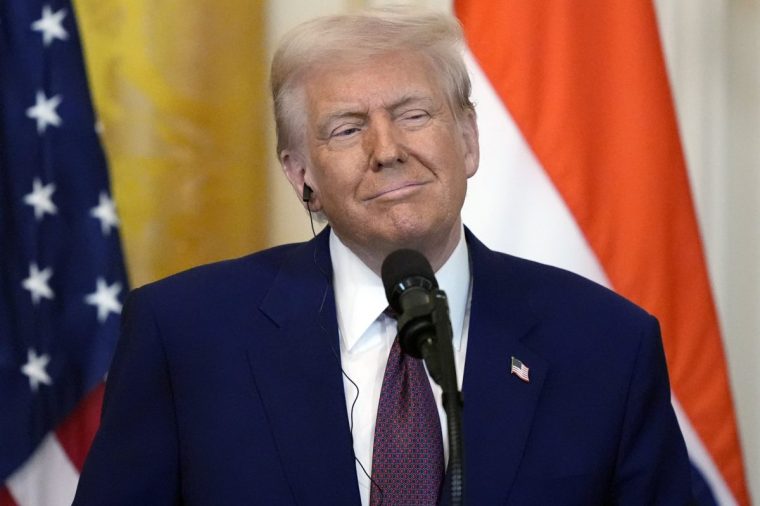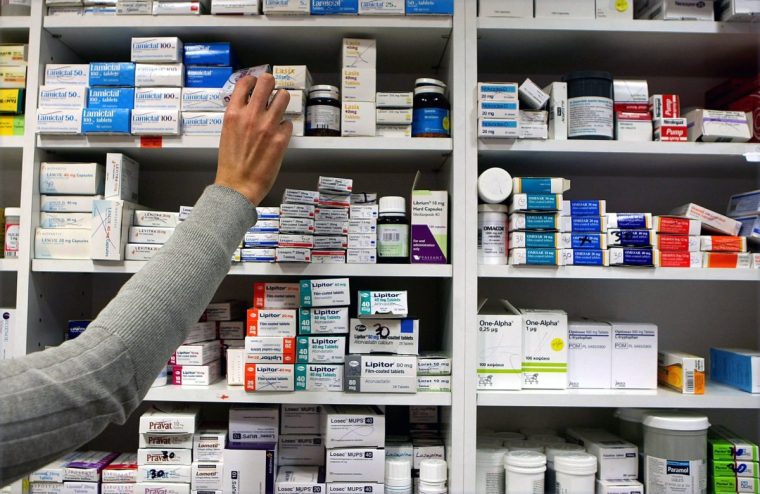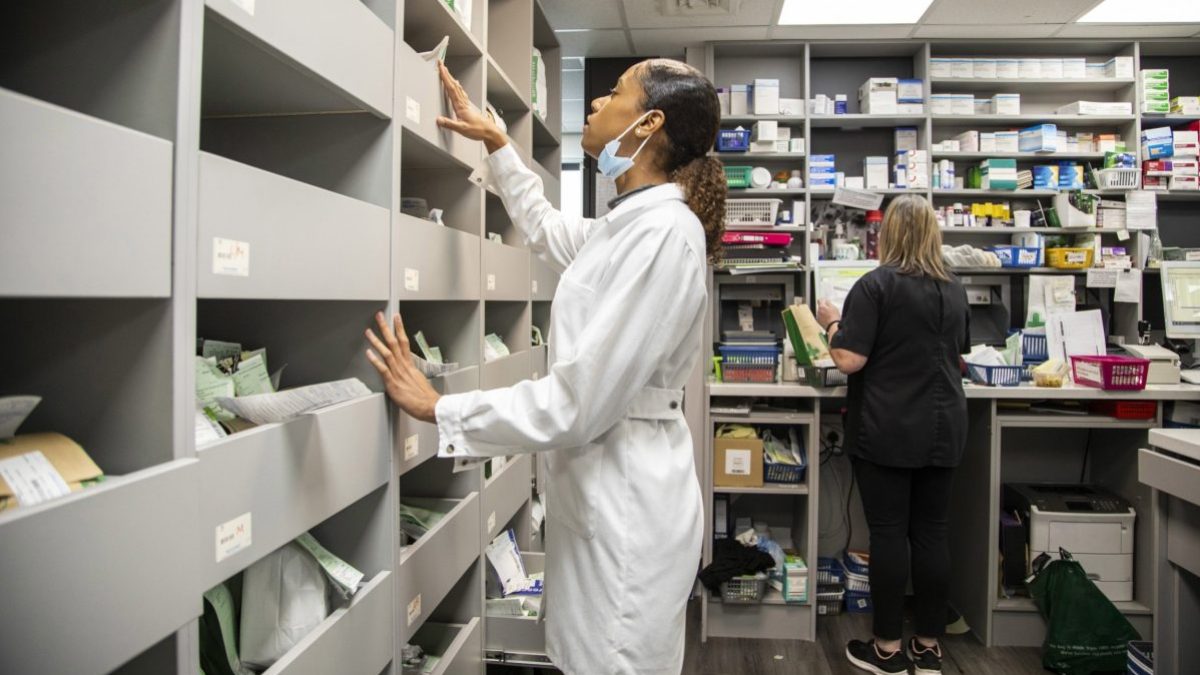Trump wants pharmaceutical companies to cut the cost of drugs for Americans – but industry bosses warn this puts the UK’s vulnerable medicine supply chain at risk
Pharmacists have warned that in-demand medicines including weight-loss jabs, beta blockers and antibiotics are at risk of price hikes and supply disruption as a consequence of US President Donald Trump’s tariffs.
Trump wants pharmaceutical companies to cut the cost of drugs for Americans and has even threated to ban exports to other countries until it happens.
After imposing a raft of new tariffs on dozens of countries overnight, the US president issued a series of demands to pharmacy firms on his Truth Social platform, including Britain’s GSK and AstraZeneca.
Trump asked them to guarantee the US “most favored nation” prices for new drugs, threatening to deploy every tool in his arsenal if he needs to. If firms do cut the price they charge to the US for their drugs, they may pass that cost onto other countries such as the UK.
Pharmacy bosses have warned that the threats are already creating shockwaves throughout the industry, driving up costs to suppliers, with the UK’s vulnerable medicine supply chain at risk.
It means the NHS could be forced to pay more for the same medicines, and patients could struggle to find prescriptions as independent businesses operating at a loss will be forced to close their doors.
A Government spokesperson said it was engaging with industry “to understand the possible impact of any changes to drug pricing”.
But industry experts have warned that any move that could disrupt trade and therefore push up the price of medicines in the UK would threaten NHS budgets.
Firms could pull medicines out of the UK
Malcolm Harrison, boss of the Company Chemists’ Association for large pharmacy operators across the UK, said the NHS would have to make a decision whether or not it is prepared to pay the price – “and if it can afford it”.
“If the Department of Health says ‘we’re only prepared to pay this much’ and the going rate is higher than that, then the manufacturers and suppliers will have to decide whether or not they market in the UK.”
The National Institute for Health and Care Excellence (NICE) makes decisions on whether or not drugs are too expensive to be offered on the NHS. Efforts to cut the UK’s medicines bill, forecast to soar to £3.5bn this year, have already seen some manufacturers pull out of the UK market.
 Trump wants pharmaceutical companies to cut the cost of drugs for Americans and has even threatened to ban exports to other countries until it happens (Photo: Alex Brandon)
Trump wants pharmaceutical companies to cut the cost of drugs for Americans and has even threatened to ban exports to other countries until it happens (Photo: Alex Brandon)
In 2023, this lead to shortages and price surges for atorvastatin – a statin to treat high cholesterol and prevent heart disease – and omeprazole – which treats heartburn, indigestion and acid reflux, as well as stomach ulcers.
Mark Dayan, policy analyst and head of public affairs at Nuffield Trust, said if the US president successfully implements his “most favoured nation” settlement it would “potentially drive up costs hugely”, raising the risk the NHS would end up paying more for the same medicines.
Newer medicines that are more profitable are likely to be most affected, he said. “They’re going to be typically the kinds of medicines that you’d often get in hospital for relatively serious conditions – or products like the weight-loss drugs that people have been hearing about (GLP-1 receptor agonists).
“They’re not going to be your everyday antidepressants, your painkillers and things like that.”
Pharmacies could fold as drug costs rise
Olivier Picard, chair of the National Pharmacy Association (NPA), said pharmacy owners were already struggling with the cost of supplying patients with medicines they do not get fully reimbursed for.
Uncertainty in the global supply chain and any forthcoming impact from could mean dispensing more drugs at a loss.
Heart medications such as amiodarone, antibiotics to treat sore throat and Scarlet Fever in children are among the drugs that have doubled in price, while prescription painkillers such as cocodamol are around 25 per cent more expensive than before, he added.
 Uncertainty in the global supply chain and any forthcoming impact could mean dispensing more drugs at a loss (Photo: Julien Behal/PA Wire)
Uncertainty in the global supply chain and any forthcoming impact could mean dispensing more drugs at a loss (Photo: Julien Behal/PA Wire)
“Mefenamic acid [an anti-inflammatory used to relieve heavy and painful periods] was costing me £8 last month. I can’t buy it for less than about £60 today,” says Picard.
“The Government’s come up with a concession price of £38.49, so every time I dispense this medication per box, I have lost £22.”
Any further stress on budgets would force more pharmacies that are already on the brink to close.
An average of four pharmacies a week closed their doors in 2024, according to analysis published earlier this year by the NPA.
While it is unclear what impact the trade decisions will have on the UK’s medicines supply chain, the threat of disruption alone can have a huge impact, Picard said.
“Patients will be affected. They won’t be able to access their medication and no one will be better off as a result,” he said.
UK supply chain is particularly vulnerable
Harrison said there is concern among pharmacists due to the fragility of the UK’s medicine supply chain.
The UK spends considerably less on medicines than comparable countries, and the US pays multiple times more for the same types of medicines available at low cost in the UK.
“Any shocks are only going to have a detrimental effect, is the current perception,” Harrison said. “The point about the UK market and the supply chain is it is incredibly vulnerable to shocks, because there’s not a lot of resilience in there, because the pricing is so low.”
But he urged patients not to worry and warned against stockpiling prescriptions pre-emptively, as any unnecessary additional demand could put strain on supplies.
Dayan added: “The number of times that Trump has announced medicines tariffs certainly suggests that there is a risk [he will follow through] – regardless of what international norms there are, he’s going to try it.”

